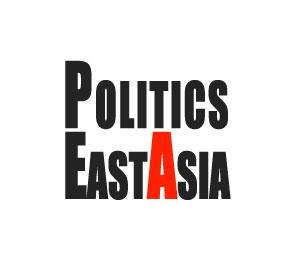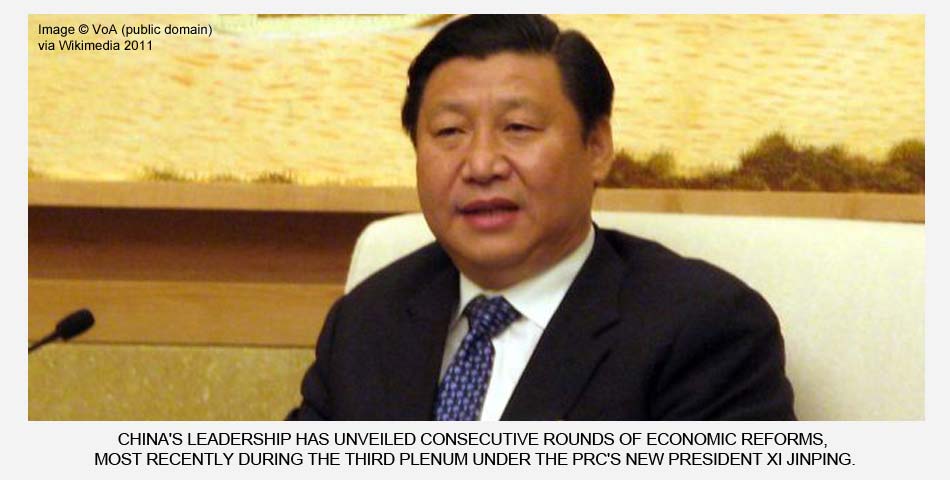China’s New Economic Reforms – Is the PRC’s Leadership on the Right Track?
A Discussion with Students at Leiden University and Rotterdam’s School of Management
Over the past years, discussions about China’s role in world have shifted from whether or not China would become an economic power, to the kind of power the PRC might turn out to be. Consecutive rounds of economic reforms have made China the second largest economy in the world and a major motor of regional and global economic growth. This success story has left an impression in countries that are currently experiencing economic down-turns. As a recent global opinion survey showed, a significant amount of people around the world erroneously believe that China has already surpassed the US as the world’s strongest economy. Following the debt crisis in the US and the financial crisis in the EU, expectations have been high that Chinese economic growth will carry the world economy, and that Chinese state investments might come to the rescue of ailing European and American markets – despite explicit statements from the Chinese authorities to the contrary.
Meanwhile, the Chinese government has taken steps to move away from its export-led economic growth model. It has tried to expand domestic consumption and cool its economy following the massive government spending that had assured growth in the wake of the world financial crisis. In 2011, the authorities unveiled their 12th Five-Year Plan, which means to keep GDP growth at seven percent, promises sustainable development, promotes an urban service-industry, and aims to improve innovation and social welfare. In November of this year, the Chinese Communist Party outlined a new set of economic reforms at its Third Plenum, which among other things focus on further liberalizing China’s state-owned enterprises, allowing more room for market economics, further involving the rural areas in China’s economic growth, and improving environmental protection.
In our previous discussions, we have covered specific areas of China’s economic development, ranging from issues in the financial markets and in international trade to questions about demographic developments, innovation, and environmental protection in the PRC. This week, in our final debate of the year, we will take stock of China’s current economic policies, and will discuss how the PRC’s development strategy affects the East Asian region and the world economy as a whole. How well is the Chinese government equipped to deliver on the promises of the Third Plenum and fulfil the targets of its current five-year plan? Are the authorities on the right track to address China’s enormous domestic challenges and turn the PRC into a high-income country, or is the country faced with too many trade-offs that simply cannot be overcome in the short term? Are the high expectations regarding China’s positive economic role in the world warranted? Share your views and ideas with us in the comments section below.
Share This Post, Choose Your Platform!
7 Comments
Comments are closed.



My personal opinion is that the PRC leadership is indeed on the right track to escape the middle income trap and to transform China into a high income country, benefiting the majority of its population. Although vaguely formulated, the current Five-Year Plan as well as the resolutions released from the Third Plenum, make me confident that China is on the right track. The most important reason is the Chinese government’s acknowledgment of the benefits of the free market system and the clearer positioning towards it.
I think it is understandable to push for further reforms and quicker and more decisive actions to fight the country’s current problems as discussed in previous debates, but transforming a giant takes time and patience.
As to how the PRC’s development strategy affects the East Asian region and the world economy as a whole, I think that looking at multinational enterprises for instance, they are dependent on growth of the Chinese economy for their own growth. This is one of the ways the Chinese economy influences the rest of the world. In order to continue growing, a transition from investment-led to consumption-led growth is needed and is one of the plans of the government. This transition will depend on several factors: continuous rapid urbanization, government measures to improve social security and boost private consumption, and financial sector and industrial reforms that will lead to the creation of service sector employment and increase incomes (McKinsey report on 2020 Chinese consumer).
If the government can manage to improve social security, the Chinese will have less intention to save so much and will thus have more money to spend on consumption. Next to this, reforms in the financial and industrial sector are necessary. I believe the government is working on both issues as already stated in their 12-year-plan from 2011. And as we have seen during our course, usually when the government has a plan it works out in one way or the other. It takes time and they do it in their own manner but I believe they will get there.
With all the provided information from the lectures, I too am convinced that the Chinese government definitely is making efforts to fulfil the targets of its current fiver-year plan and has the capability to do so. Reforms in the past have proven that the PRC can be very successful in its actions. However, the only thing that might be a concern in the future are the possible side-effects of the government’s decisions. For instance, on the one hand the one-child policy and the massive government spending have prevented overpopulation and a genuine economic crisis in China, but on the other hand these policies have generated problems like gender imbalance and overinvestment. The PRC is right in addressing its domestic challenges, but has to implement well-considered policies by taking the possible consequences into account. Only then China will be able to become a sustainable economy and have a positive impact on the East Asian region and the world economy.
The 5 year plans indeed look promising and show that the CCP is very much aware of the problems at hand, both current and future. However, one has to wonder if too much damage has already been done in the last 3 decades. I refer to the negative outcome of the one child policy and the severe environmental pollution. China will grow old before it has te chance to become rich, as Naughton states. There is much more to be done to avoid this on the spot future prediction.
I do believe China’s new 5 year plan, where the focus is on sustainable growth, industrial upgrading and the promotion of domestic consumption, brings it a step forward into a direction of becoming a more ‘modern’ economy. However, the problems a rapidly expanding economy faces cannot be overcome just that easily. A growing inequality, pollution and a greying population and the like will make it difficult for China keep sustainable growth, especially in the short run. Therefore, focus should be on the long run. By improving social security and upgrading the economy towards a more consumption oriented one, China will surely be able to survive a crisis, if it may come from the current problems it faces.
In general, and we can see this from previous reforms, the Chinese overly focuses
on short term and quick results. Nevertheless, they manage to achieve positive short term results. However, most of the time, the Chinese government ignores the potential problems that might present in the long -term.
This might sometimes not be my view.
Let me take the pessimistic road this time, as Nauman stated, the CCP seems to be aware of all the problems and it feels like as if the leadership really tries to tackle the problems, but there are severe problems already there and more coming up. The environment is about to collapse, not only in China. I do not want to live in China due to the environmental issues. I recall that you also said so in the lesson. Just today I read that the Chinese society is the most materialistic in the world (quartz, 2013) and marriages are in many cases just a matter of money (PBS, 2013). Have the “little emperors” in mind and the soon to overage society, the heavy competition on the labor market, even for the very educated; I am seeing a unhealthy population which needs a slowing down rather than more growth.
National consumption away from export? Oh great, then we have a a billion people buying the shit, that Americans, Europeans, Russians would buy. The globe will sink, in 2014. The credo of growth is wrong.